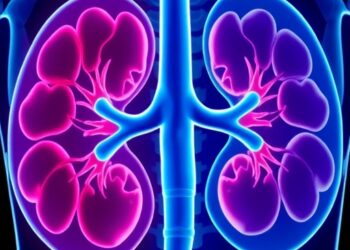Hepatocellular carcinoma (HCC) is a highly aggressive tumor with limited treatment options and high mortality. Senecavirus A (SVA) has shown potential in selectively targeting tumors while sparing healthy tissues. This study aimed to investigate the effects of SVA on HCC cells in vitro and in vivo and to elucidate its mechanisms of action.
Background and Aims
Hepatocellular carcinoma (HCC) is a highly aggressive tumor with limited treatment options and high mortality. Senecavirus A (SVA) has shown potential in selectively targeting tumors while sparing healthy tissues. This study aimed to investigate the effects of SVA on HCC cells in vitro and in vivo and to elucidate its mechanisms of action.
Methods
The cell counting kit-8 assay and colony formation assay were conducted to examine cell proliferation. Flow cytometry and nuclear staining were employed to analyze cell cycle distribution and apoptosis occurrence. A subcutaneous tumor xenograft HCC mouse model was created in vivo using HepG2 cells, and Ki67 expression in the tumor tissues was assessed. The terminal deoxynucleotidyl transferase dUTP nick end labeling assay and hematoxylin and eosin staining were employed to evaluate HCC apoptosis and the toxicity of SVA on mouse organs.
Results
In vitro, SVA effectively suppressed the growth of tumor cells by inducing apoptosis and cell cycle arrest. However, it did not have a notable effect on normal hepatocytes (MIHA cells). In an in vivo setting, SVA effectively suppressed the growth of HCC in a mouse model. SVA treatment resulted in a significant decrease in Ki67 expression and an increase in apoptosis of tumor cells. No notable histopathological alterations were observed in the organs of mice during SVA administration.
Conclusions
The in vitro study demonstrated that SVA effectively suppressed the growth of the HCC cell line HepG2 by causing cell cycle arrest and apoptosis. Nevertheless, no analogous effects were observed in the normal liver cell line MIHA. Within a living organism, the administration of SVA effectively suppressed the growth of HCC in a mouse model placed beneath the skin by triggering apoptosis. Furthermore, we have demonstrated that intratumoral administration of SVA is not associated with any safety concerns. Collectively, the data indicate that SVA could be a promising new therapeutic approach for HCC.
Full text
The study was recently published in the Journal of Clinical and Translational Hepatology.
The Journal of Clinical and Translational Hepatology (JCTH) is owned by the Second Affiliated Hospital of Chongqing Medical University and published by XIA & HE Publishing Inc. JCTH publishes high quality, peer reviewed studies in the translational and clinical human health sciences of liver diseases. JCTH has established high standards for publication of original research, which are characterized by a study’s novelty, quality, and ethical conduct in the scientific process as well as in the communication of the research findings. Each issue includes articles by leading authorities on topics in hepatology that are germane to the most current challenges in the field. Special features include reports on the latest advances in drug development and technology that are relevant to liver diseases. Regular features of JCTH also include editorials, correspondences and invited commentaries on rapidly progressing areas in hepatology. All articles published by JCTH, both solicited and unsolicited, must pass our rigorous peer review process.
Follow us on X: @xiahepublishing
Follow us on LinkedIn: Xia & He Publishing Inc.
Journal
Journal of Clinical and Translational Hepatology
Article Title
Oncolytic Virus Senecavirus A Inhibits Hepatocellular Carcinoma Proliferation and Growth by Inducing Cell Cycle Arrest and Apoptosis
Article Publication Date
20-Jun-2024




